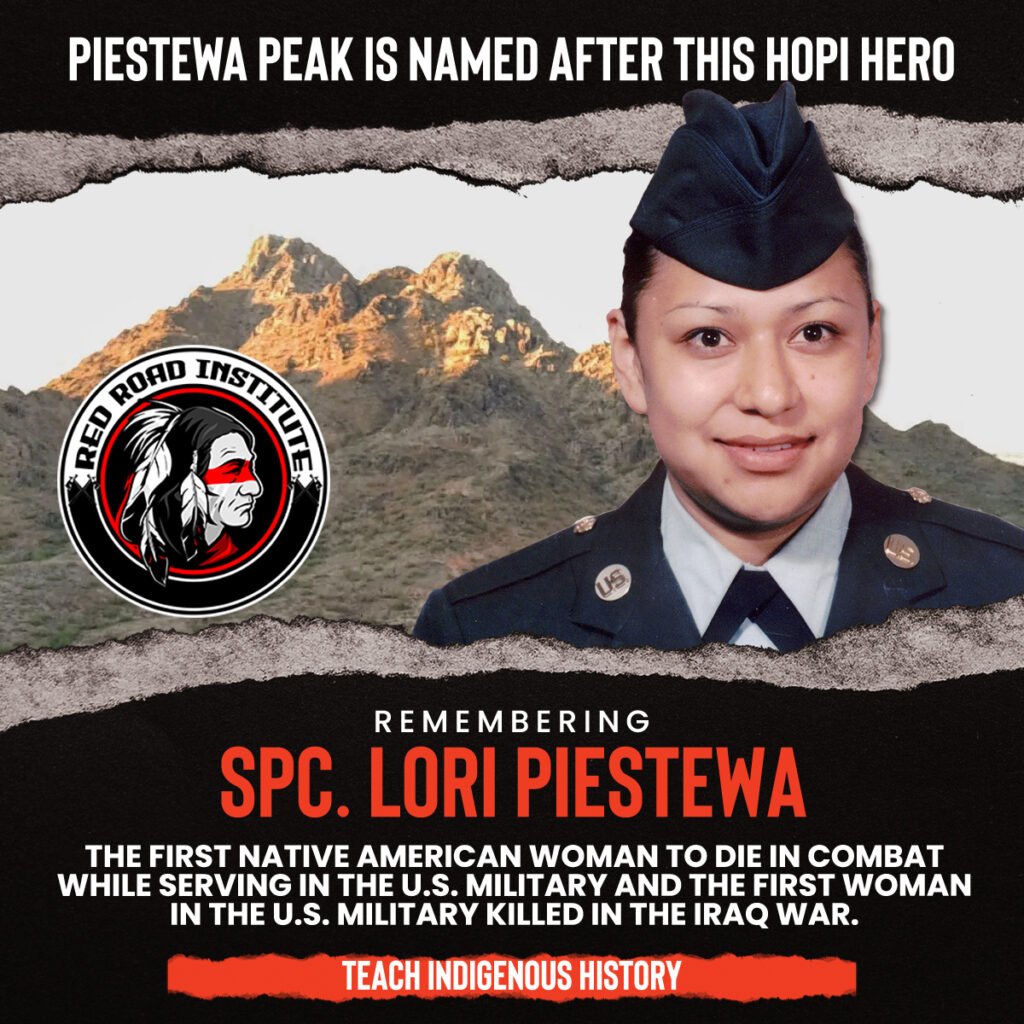The rescue of Jessica Lynch is one of the most well-known stories from Operation Iraqi freedom. However, even Lynch wants you to know that her roommate Lori Piestewa, a Native American soldier, was the hero of those events.
In January 2003, the 507th Maintenance Company of Fort Bliss, Texas, received word that they were deploying to Iraq. Because Piestewa was still recovering from previous shoulder surgery, she was supposed to be excluded from the deployment. However, knowing that her roommate was anxious about the upcoming deployment, Piestewa petitioned to be deployed.
On March 23, 2003, Piestewa was driving a Humvee in the back of a convoy carrying supplies. The convoy made a wrong turn and missed their checkpoint. Lynch’s truck broke down along the way, but Piestewa noticed and drove over to her, calling, “get in, roommate.”
As the convoy continued, they were ambushed. Piestewa helped them avoid several attacks until a rocket-propelled grenade hit the left tire of the Humvee she drove.
During the ambush, Piestewa, Lynch, and the rest of the convoy were all taken as prisoners of war. While being held prisoner in a hospital she died from her injuries.
On April 1, Lynch was rescued by Special Forces, and they also recovered Piestewa’s body from a mass grave behind the hospital. The rescue was a national story as Lynch became the first American prisoner of war rescued since World War II and the first-ever of a woman.
Too often forgotten is the young Hopi woman who became the first Native American woman to die in combat while serving in the U.S. military and the first woman in the U.S. military killed in the Iraq War.
In 2008, the second-highest point in the Phoenix Mountains was named after her. The 2,610-foot mountain now carries the name Piestewa Peak. Stories like this should be taught in school, and we need your help.


